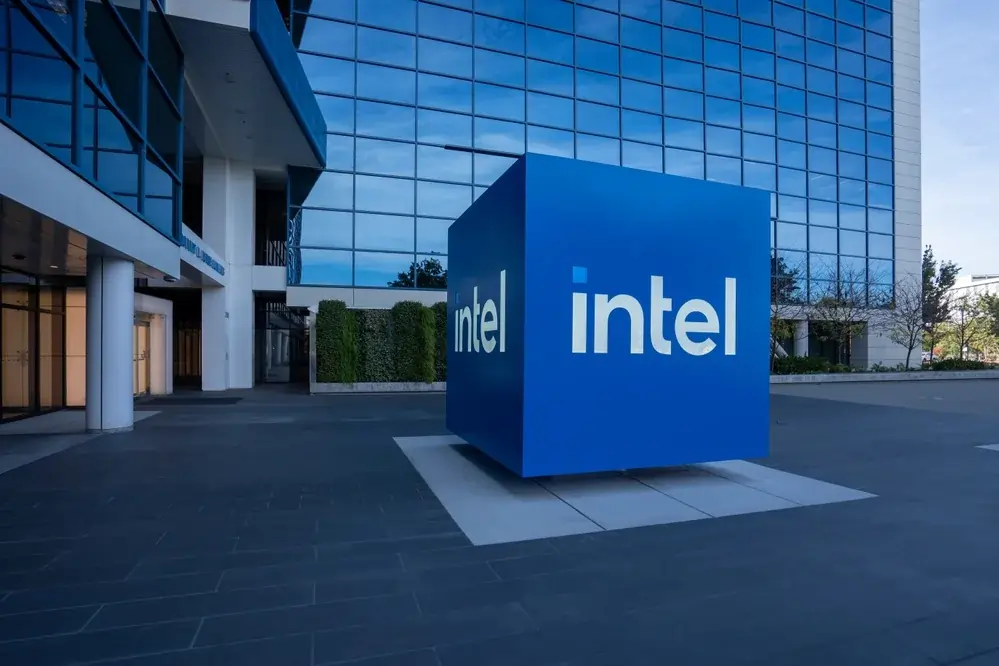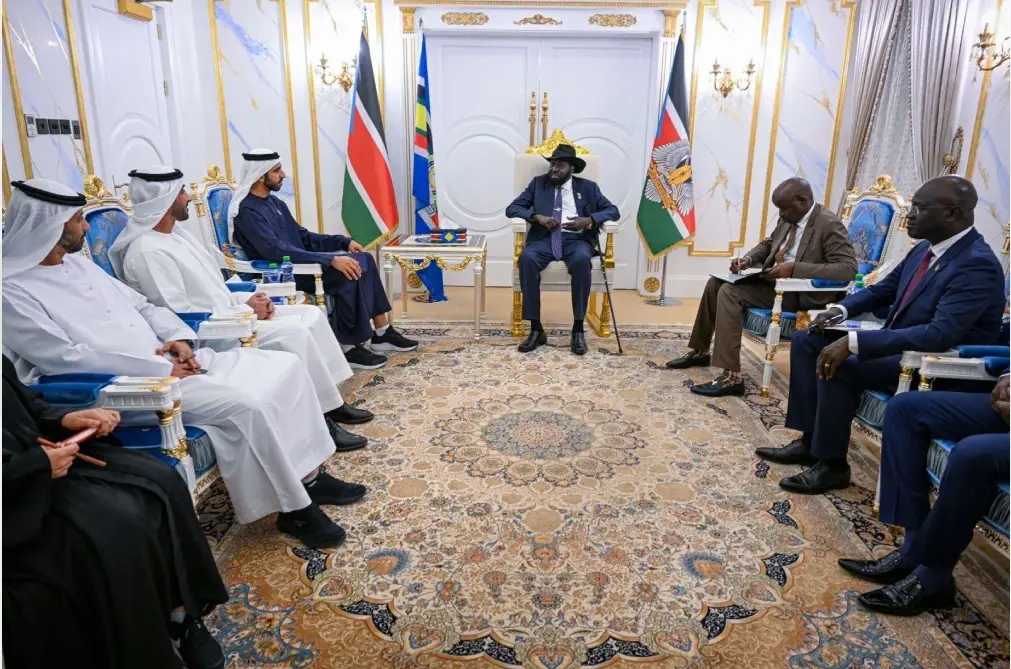Tech giant Intel has been making headlines lately, navigating a challenging landscape that has tested its resilience. Following a turbulent period marked by declining market share and strategic overhauls, Intel is now the subject of speculation regarding a potential acquisition by Qualcomm. While these acquisition rumors have not been substantiated, another significant development has emerged—Apollo Global Management Inc. is reportedly considering a multi-billion dollar investment in the struggling chipmaker, providing Intel with much-needed capital to execute its turnaround strategy.
Intel’s Struggles: A Legacy Tech Giant on Shaky Ground
Intel, once a dominant player in the semiconductor industry, has faced numerous challenges in recent years. The company’s market value has significantly dropped, with its shares hitting a 50-year low in August 2024. The decline is part of a broader struggle to keep up with competitors like Advanced Micro Devices (AMD) and Nvidia, who have managed to pull ahead with more innovative chip solutions, especially in high-demand markets like artificial intelligence (AI), gaming, and cloud computing.
To combat its eroding market position, Intel, under CEO Pat Gelsinger, has embarked on an ambitious restructuring plan aimed at reinvigorating its core business, including layoffs impacting 15% of its workforce. However, Gelsinger’s efforts, while comprehensive, require significant financial resources. This is where Apollo’s reported investment could play a crucial role.
Apollo’s Potential Investment: A Lifeline for Intel’s Turnaround Plans
According to a Bloomberg report, Apollo Global Management is in talks with Intel to provide a potential investment of up to $5 billion. This investment, if it materializes, could offer Intel the financial breathing room it desperately needs to execute its multi-year turnaround strategy.
Apollo, a leading private equity firm with a history of investing in distressed assets, sees potential in Intel’s long-term strategic goals. For Intel, Apollo’s capital infusion could help stabilize its finances, especially at a time when the chipmaker is heavily investing in new technologies and expanding its customer base in a bid to diversify its revenue streams.
However, discussions between Apollo and Intel are still in the early stages. The investment deal has not been finalized, and the proposal could change in scope—or even fall apart entirely. But if it moves forward, it would be a significant financial endorsement of Gelsinger’s leadership and Intel’s roadmap for recovery.
Acquisition Rumors: Qualcomm’s Interest in Intel?
While the Apollo news is generating substantial interest, Intel’s future is also clouded by rumors of an acquisition by Qualcomm. Qualcomm, known for its leadership in mobile chipsets, is reportedly exploring the idea of acquiring Intel as part of its strategy to diversify its business. While these reports remain unconfirmed, industry analysts have been speculating that Qualcomm may be attracted to Intel’s robust portfolio of patents and its dominance in manufacturing chips for personal computers and servers.
Acquiring Intel would represent a bold move for Qualcomm, which has largely focused on mobile technology. However, expanding into the broader semiconductor market through Intel could give Qualcomm a competitive edge against industry behemoths like Nvidia and AMD, particularly in AI, 5G infrastructure, and cloud computing.
Still, any potential deal would face significant regulatory scrutiny, particularly from antitrust authorities in both the United States and the European Union. Given the size and scope of both Qualcomm and Intel, any merger would likely undergo intense investigation to ensure it doesn’t violate competition laws.
Intel’s Existing Relationship with Apollo
This isn’t the first time Apollo and Intel have crossed paths. Earlier in 2024, Apollo and Intel entered into a $11 billion deal that saw Apollo acquire a 49% stake in Intel’s chip manufacturing facility in Ireland. This move was part of Intel’s broader strategy to raise cash while continuing to operate the facility, allowing it to pursue its expansion plans without being weighed down by additional debt.
Apollo’s interest in Intel isn’t without reason. The private equity firm specializes in identifying companies with significant growth potential, even if they are currently facing financial headwinds. By investing in Intel, Apollo is betting that the chipmaker can rebound and reassert itself as a leader in the semiconductor space—a market expected to grow exponentially due to the increasing demand for chips in sectors such as AI, 5G, and electric vehicles (EVs).
Intel’s Turnaround Strategy Under CEO Pat Gelsinger
When Pat Gelsinger returned to Intel as CEO in early 2021, his mandate was clear: to restore Intel’s leadership in the semiconductor industry. A veteran of the tech world and former Intel engineer, Gelsinger immediately laid out an aggressive vision to overhaul Intel’s product line, reinvest in manufacturing capabilities, and reposition the company as a leader in cutting-edge technologies like AI and quantum computing.
Gelsinger’s strategy has been a multi-pronged approach:
- Revamping Intel’s Chip Manufacturing: Intel has committed to massive investments in its chip manufacturing operations. The company aims to regain its edge in the foundry business, where it competes directly with Taiwan Semiconductor Manufacturing Company (TSMC) and Samsung. Gelsinger has dubbed this effort “IDM 2.0,” which includes Intel manufacturing chips for other companies—a business model historically dominated by TSMC.
- Expanding into AI and Quantum Computing: Intel is making significant strides in artificial intelligence and quantum computing. It has been working on chips specifically designed for AI workloads, with the hope of tapping into the explosive growth of AI-driven industries. In quantum computing, Intel has made notable advancements, although it is still behind competitors like IBM and Google.
- Increasing Focus on Software: While Intel has long been known for its hardware, the company is placing increased emphasis on developing software solutions. This includes optimizing its chips to work seamlessly with AI and machine learning applications—a move that could give Intel an edge over its hardware-centric rivals.
- Building Strategic Partnerships: Intel has also been keen on forging new partnerships. In 2023, the company announced a collaboration with Tower Semiconductor, which would give Intel access to additional manufacturing capacity. This partnership is part of a broader strategy to build out Intel’s foundry services and expand its influence in the global semiconductor market.
Apollo’s History with Distressed Assets
Apollo Global Management is no stranger to distressed investments. The firm has built a reputation for stepping in when companies are experiencing financial turmoil but still possess strong underlying assets or growth potential. Intel, despite its recent struggles, fits this profile.
Apollo’s investments typically come with stringent conditions, often involving significant operational changes or leadership restructuring. While there’s no indication that Apollo would take a controlling stake in Intel, the firm’s involvement could influence Intel’s future decision-making, particularly as it navigates a highly competitive and rapidly evolving industry.
The Road Ahead for Intel
As Intel works through its turnaround efforts, it faces an uphill battle. The global semiconductor market is more competitive than ever, with established players like AMD, Nvidia, and TSMC continually pushing the envelope. Newcomers from China are also entering the fray, further complicating Intel’s efforts to regain its dominant position.
Intel’s ability to rebound will depend on how well it can execute its new strategy. Apollo’s potential investment could provide the financial cushion Intel needs, but the company must also deliver on its promises of innovation and market relevance.
For now, the tech world waits to see if Apollo’s investment will materialize and if Qualcomm’s rumored acquisition interest will evolve into something more concrete. Regardless, the next few months will be critical for Intel, as it seeks to reinvent itself and regain its place at the forefront of the semiconductor industry.
photo source: Google
By: Montel Kamau
Serrari Financial Analyst
23rd September, 2024
Article, Financial and News Disclaimer
The Value of a Financial Advisor
While this article offers valuable insights, it is essential to recognize that personal finance can be highly complex and unique to each individual. A financial advisor provides professional expertise and personalized guidance to help you make well-informed decisions tailored to your specific circumstances and goals.
Beyond offering knowledge, a financial advisor serves as a trusted partner to help you stay disciplined, avoid common pitfalls, and remain focused on your long-term objectives. Their perspective and experience can complement your own efforts, enhancing your financial well-being and ensuring a more confident approach to managing your finances.
Disclaimer: This article is for informational purposes only and does not constitute financial advice. Readers are encouraged to consult a licensed financial advisor to obtain guidance specific to their financial situation.
Article and News Disclaimer
The information provided on www.serrarigroup.com is for general informational purposes only. While we strive to keep the information up to date and accurate, we make no representations or warranties of any kind, express or implied, about the completeness, accuracy, reliability, suitability, or availability with respect to the website or the information, products, services, or related graphics contained on the website for any purpose. Any reliance you place on such information is therefore strictly at your own risk.
www.serrarigroup.com is not responsible for any errors or omissions, or for the results obtained from the use of this information. All information on the website is provided on an as-is basis, with no guarantee of completeness, accuracy, timeliness, or of the results obtained from the use of this information, and without warranty of any kind, express or implied, including but not limited to warranties of performance, merchantability, and fitness for a particular purpose.
In no event will www.serrarigroup.com be liable to you or anyone else for any decision made or action taken in reliance on the information provided on the website or for any consequential, special, or similar damages, even if advised of the possibility of such damages.
The articles, news, and information presented on www.serrarigroup.com reflect the opinions of the respective authors and contributors and do not necessarily represent the views of the website or its management. Any views or opinions expressed are solely those of the individual authors and do not represent the website's views or opinions as a whole.
The content on www.serrarigroup.com may include links to external websites, which are provided for convenience and informational purposes only. We have no control over the nature, content, and availability of those sites. The inclusion of any links does not necessarily imply a recommendation or endorsement of the views expressed within them.
Every effort is made to keep the website up and running smoothly. However, www.serrarigroup.com takes no responsibility for, and will not be liable for, the website being temporarily unavailable due to technical issues beyond our control.
Please note that laws, regulations, and information can change rapidly, and we advise you to conduct further research and seek professional advice when necessary.
By using www.serrarigroup.com, you agree to this disclaimer and its terms. If you do not agree with this disclaimer, please do not use the website.
www.serrarigroup.com, reserves the right to update, modify, or remove any part of this disclaimer without prior notice. It is your responsibility to review this disclaimer periodically for changes.
Serrari Group 2025





